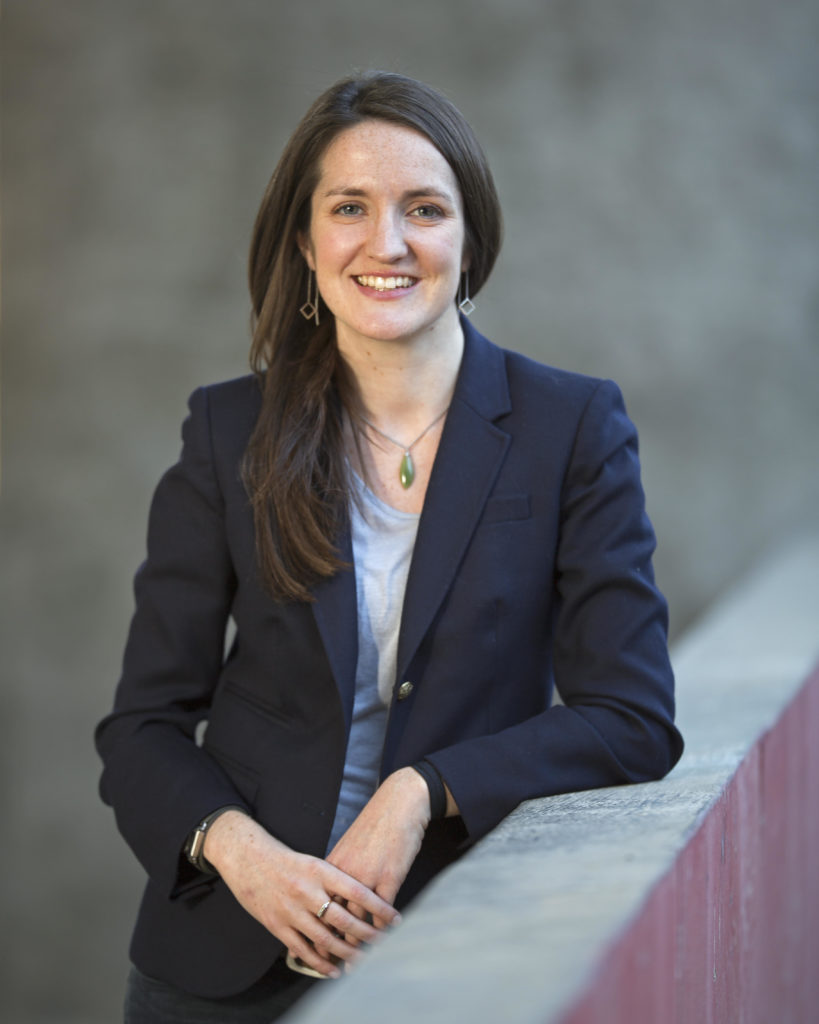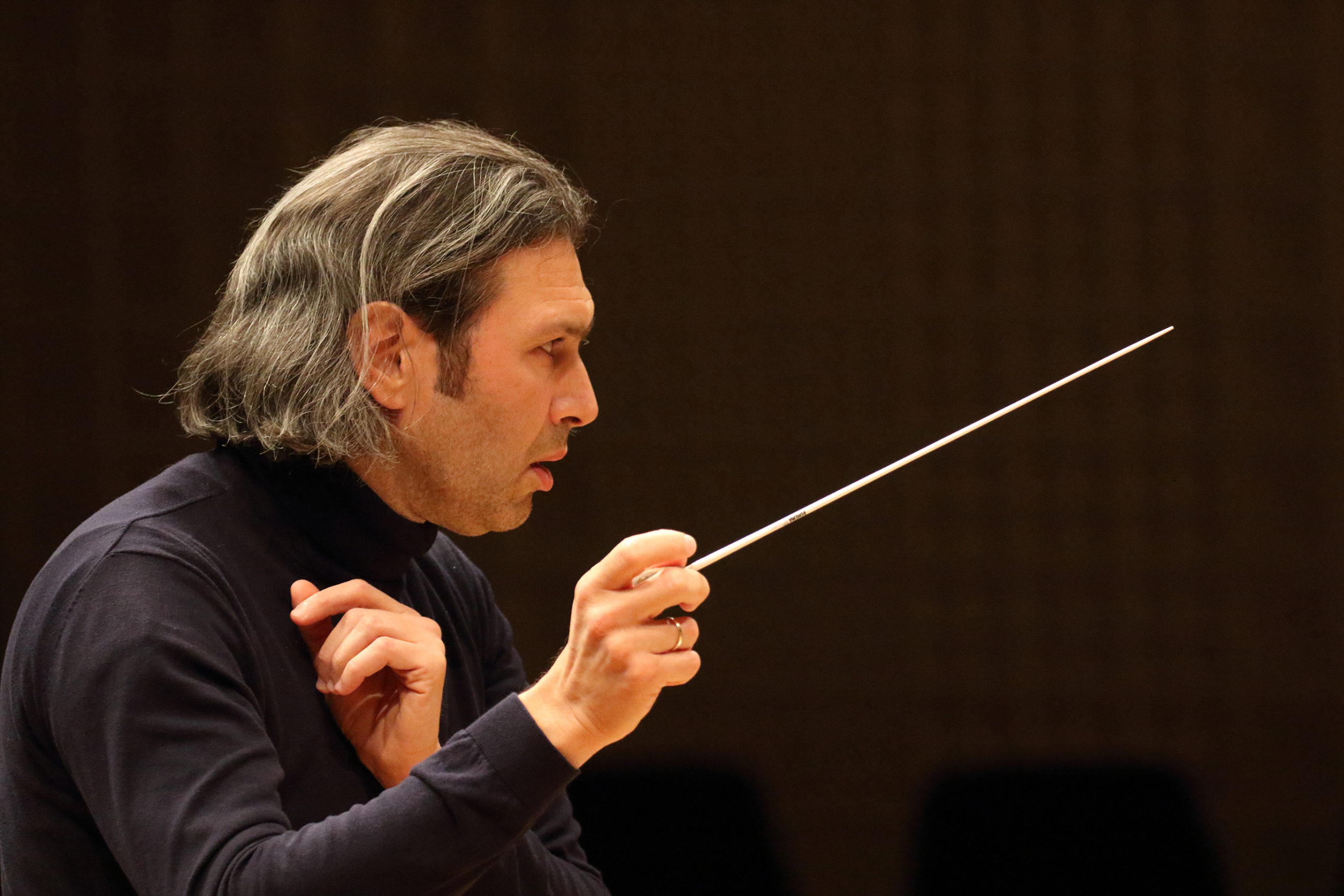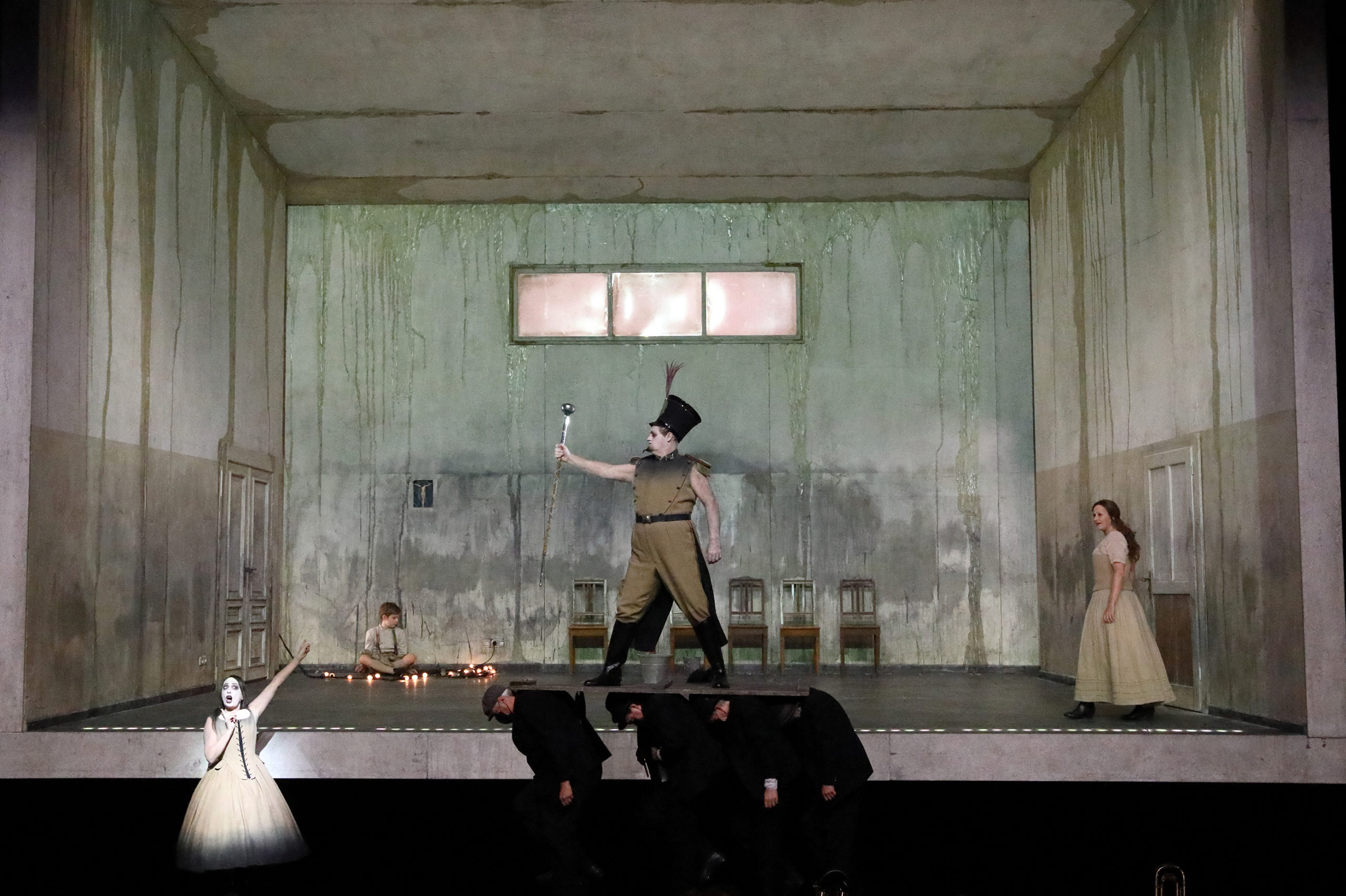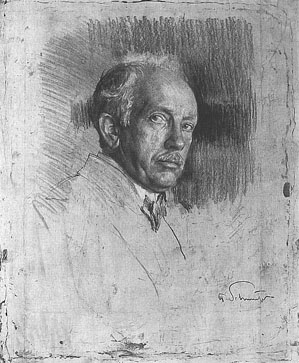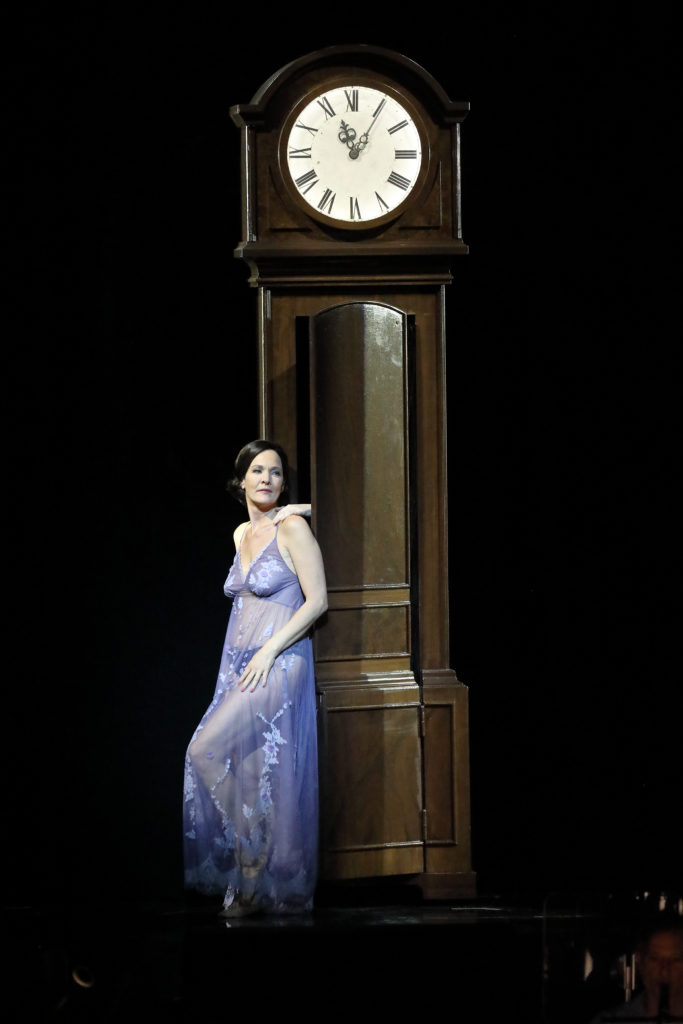More than a week has gone by since news came of the passing of Bernard Haitink. Tributes, fond remembrances, recollections, and analyses have poured from a number of sources across the classical world, notably from the organizations he was part of, including the Royal Opera (Music Director, 1987-2002), London Philharmonic (Principal Conductor, 1967-1979), Concertgebouw Orchestra (Chief Conductor, 1961-1988), and Glyndebourne (Music Director, 1978-1988) as well as others (including the London Symphony Orchestra) where he was a regular and beloved guest. BBC Music Magazine’s Michael Beek called Haitink “one of the most revered conductors of the last 65 years” and indeed, pondering the range of his influence, across institutions, orchestras, conductors, even (or especially) listening, is a task which requests the very things one feels are lacking, especially in this, our pandemic era: attention, patience, time. They are things Haitink very often insisted on, with quiet confidence, through his recordings and performances across six decades.
The conductor, who grew up in Nazi-occupied Holland and hailed from a non-musical household, possessed a humble grace which was reflected in whatever he directed his own considerable attention toward – though, as The Guardian‘s Nicholas Wroe rightly noted in a (wonderful) 2000 profile, “his reputation as a taciturn and somewhat introvert figure is slightly overplayed.” Haitink’s greatness came not from his being so different from other conductors of his generation in his economy of gesture so much as being his very own self through such expression. He said a lot by saying very little, and in so doing, touched the lives of a great many. In reading through numerous tributes of late, I have found it increasingly difficult to put into precise words the ways in which Haitink’s legacy has influenced my own listening and appreciation. Much of my experience of his work relates to the alteration (or rather, evolution) of long-held perceptions around my own capabilities; he led music which, for various reasons, I believed was too complex, too intellectual, too … deep, too dense, too detailed, simply too much for a plain-Jane, non-Conservatory-schooled person who grew up in suburban Canada. Despite my years of piano playing, there was an innate feeling that certain composers, and certain works, were simply beyond my comprehension or appreciation. Haitink’s recordings showed me otherwise. His recordings, of those supposedly “dense” works (by Bruckner, Mahler, and Shostakovich), as well as symphonies I thought I knew well (Brahms) imbued a quiet confidence in my own abilities, as a listener, music lover, eventual writer and interviewer; such careful listening, and concomitant trusting, re-examining, and pondering, together with study, conversation, and engagement, are pursuits I credit Haitink with developing. He trusted the music, and he trusted the listener’s ability to experience that music. No daunting grand idea, statement, credo, or personality superimposed on top; there was, and is, only sound, something anyone can understand.
Lately I wonder about the context in which such artistry arose and was cultivated, especially now, in an age where image is so often conflated with impact. Listening to the recording he made of Wagner’s Die Meistersinger von Nürnberg, (captured live at Covent Garden in 1997; released via Opus Arte), one’s thoughts turn to that last quality, mentioned above: time. It is a long work, but oh, how the time stops, and simultaneously runs by so quickly. “There is no force more powerful,” writes Mark Wigglesworth in The Silent Musician: Why Conducting Matters (Faber & Faber, 2018):
We cannot control it. We cannot influence it. […] Through music we can experience an hour as if it were a minute or a minute as if it were an hour. Music gives us the power to live in the present […] releases the present from the weight of its past and the expectations of its future. […] (Conductors) seek to organize music within time while simultaneously releasing it from the restrictions time imposes. We work within the boundaries of this paradox, managing the ebb and flow of music to defy a ticking clock and inspire a pulsing heart.
How might Wagner’s work have sounded, I wonder, had Haitink been a few decades younger? Or older? And how might I have received it in my younger days? 1997 found me chasing rock bands, reading the work of William Burroughs, listening to trip-hop; none of these pursuits seem reduced by my appreciating the work of Haitink (and indeed Wagner) now, but of course opera asks something different, something one may or may not be prepared to allow and to cultivate. As noted in the contributions below, the Haitink of older years was not precisely the Haitink of younger years. The conductor’s magic, then, was a most human one: he allowed time, and life, to change him, and he allowed us to experience that with him.
From Holland to the UK (to Chicago, to Vienna, and beyond), with heart surgery in 1998 and a hectic schedule of performances and recordings leading to a final performance in 2019 (at the Lucerne Festival with the Vienna Philharmonic), Haitink’s feeling for life, and the living of it, is expressed in sound as much as in the silence between those sounds.”There is no excuse for arrogance,” continues Wigglesworth, “and I actually don’t think you can be a good conductor without feeling humility toward the music and empathy with the players.” To exercise such empathy is a choice, a simultaneously brave and vulnerable one; music very often asks, nay demands, its cultivation, if not its outright expression. Empathy in concert with time, can have particularly bittersweet effect when experienced through this, our pandemic era. Through the loss of so many people whose work has had a personal effect, people who I admired and with whom I so wanted to speak (Graham Vick, Christa Ludwig, Edita Gruberova, Alexander Vustin, Dmitri Smirnov, and Alexander Vedernikov among them), Haitink’s passing in particular feels like something of a ‘last straw’ in grief. In her 2005 book The Year Of Magical Thinking (pub. Alfred A. Knopf), Joan Didion writes that “we are not idealized wild things. We are imperfect mortal beings, aware of that mortality even as we push it away, failed by our very complication, so wired that when we mourn our losses we also mourn, for better or for worse, ourselves. As we were. As we are no longer. As we will one day not be at all.” Facing Haitink’s death has proven a reckoning on a number of levels, inner and outer, and I continue to try to calculate these losses – of people I don’t know and will never get to speak with; artists whose work so touched my life and shaped so many of its winding nooks and cranies. I continue attempts, however futile, to integrate the work of such figures with the loss of a mother whose passion for music, and inherent mistrust of being educated in it, led me into this world. Haitink helped me feel a bit more welcome, and I never got to thank him.
There are, of course, plenty who did, in a great many ways. “A good conductor gives musicians the feeling that even though they’re doing things his way, they would have chosen that way for themselves,” writes Christopher Seaman in his 2013 book Inside Conducting (University of Rochester). “This talent for persuasion is something you’re born with; nobody can teach it.” Such sentiments are echoed in the contributions below, from a range of inspiring conductors across the classical world. Also included are the thoughts of two music writers whose experiences of Haitink, on record and live, offer further insight. Some of these contributors are people I have interviewed in the past; others are new, but all, I feel, offer unique and moving perspectives. I am deeply grateful to all of them for sharing their thoughts here.
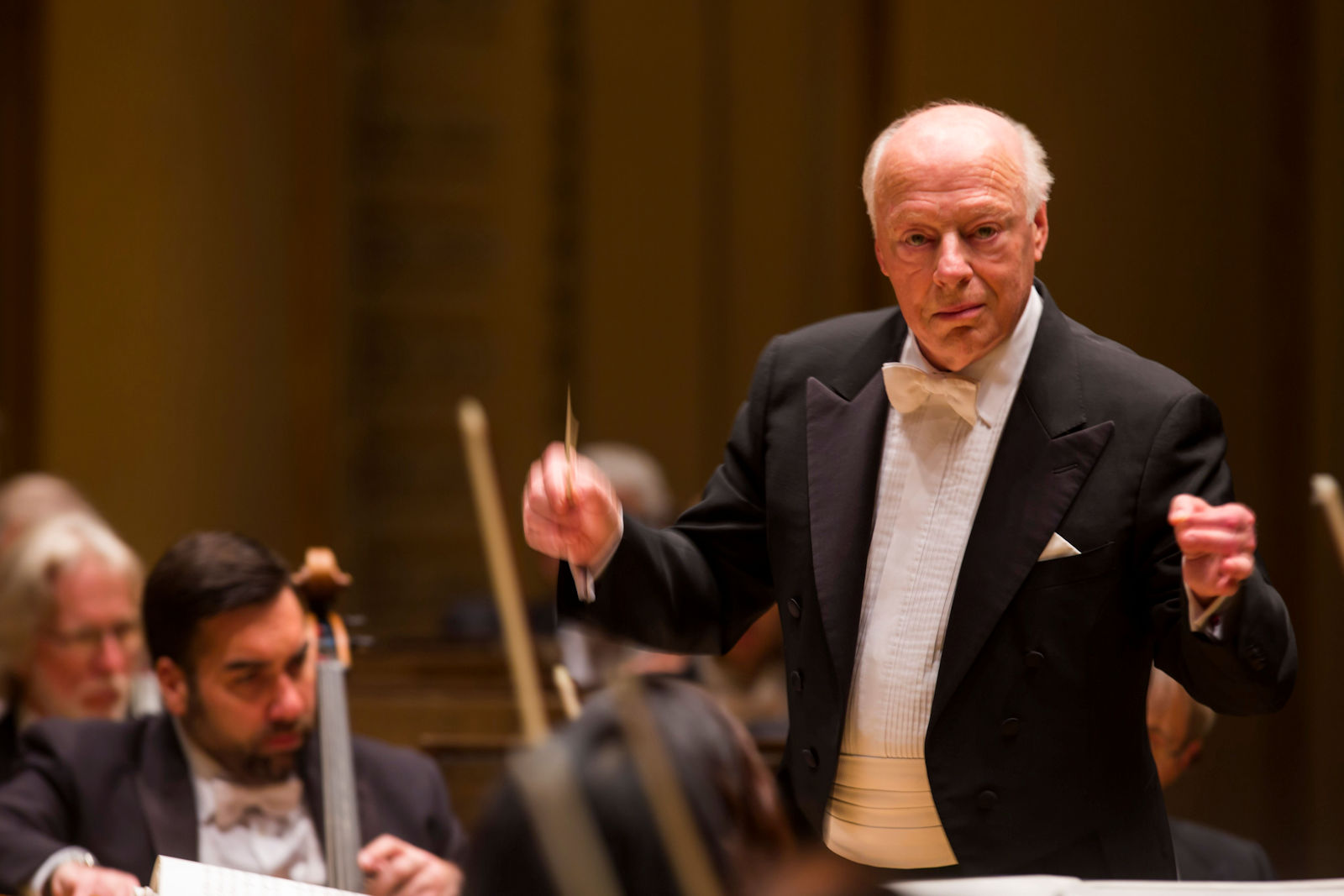
Bernard Haitink leading the Chicago Symphony Orchestra in October 2013. Photo © Todd Rosenberg Photography 2013
Sir Antonio Pappano
Music Director, Royal Opera House, Covent Garden
Music Director, Orchestra dell’Accademia Nazionale di Santa Cecilia
Chief Conductor, London Symphony Orchestra from 2024-2025 (Designate from 2023-2024)
As the handover (of the Royal Opera) was happening in London, when he was leaving and I was taking over, he was very, very gracious – in fact, he invited my wife and I to dinner, and although he was not a man of many words, he made me understand how much he cared for the institution. I was very much aware of what he did, to keep the whole structure afloat. I’m talking about chorus and orchestra now, as a whole, because it was really in peril then, and there were so many political forces, trying to bring the place down, somehow, and he would have none of it. He was just firm, he didn’t go screaming and shouting – there was an inner conviction – and he continued to do concerts – the orchestra was performing outside the opera house; it was a wonderful defense of the livelihoods of so many musicians, and also how important the building was, I mean it was a crown jewel in British artistic life, so … you know, he will be beloved forever there. It was very, very important for me to understand what I had to live up to – I’m a completely different musician from him in the sense that I grew up in the theatre and all that, but I understood the esteem in which he was held. There was a firm foundation in the orchestra that I had to work with; he had his hands all of it, and I consider myself very lucky indeed.
I think everybody will say this about Bernard’s podium manner and his way of conducting, that “he let the music speak for itself” – well, what does that mean? What it means is that basically, he’s not getting in the way of the flow of the music, but he is guiding it; it’s not that he just lets it happen, no, he’s very much guiding it, and that creates a feeling of well-being in the players, and in the sound… the sound starts to glow because everybody is happy in the way the music is being shaped and the way they’re being guided. And this is something that you can’t really learn. It was just his presence. He had a way, a warmth, and a security … in himself, and the knowledge that the music, with just a firm guidance, would meld together, and that it would happen in his performances – that somehow, the intensity of the listening, and the well-being of the orchestra, created this sound. And it was a beautiful thing. My approach is completely different, and others’ approach is completely different, but this was really his, and it was a sort of trademark, a beautiful signature.
Amsterdam has a very rich Mahlerian history, which Bernard continued, and continued over time to refine and to deepen. It was an ideal hall also for the music of Bruckner – the Concertgebouw I’m talking about – because the resonance of that hall, and the way the instruments blend, it almost sounds like an organ, which is how one must approach Bruckner’s music, in some manner or form, and I think this music became a part of him, over time. But very interestingly, he conducted beautiful Debussy also, and wonderful Vaughan-Williams, he was much more than just Mahler-Bruckner… that which required beauty of sound, poise, and very strong foundations, like Brahms of course, that was, I think, very fertile ground for his way of making music.
Bernard came up during the recording era, so there are many documents of his work, but how does one describe “egoless,” you know, or “absolutely faithful to the composer”? We say that because it’s an exterior manifestation. We see it from the outside. His podium manner was not flashy, yet he could whip up the orchestras to a frenzy if he wanted to. He was very measured in dosing out intensity. One of the most difficult lessons to learn, and I can tell you I am still learning it, is, how, if you have a passion that is extraordinary, how do you dose that out? Because if you pour all that passion into every single bar in the same manner, it… basically it’s like you are ruining food with a sauce that is just too overpowering. That’s not the most elegant of comparisons, but you get the idea. I think he knew how to dose out, and how to measure, how to weight – he was a patient musician, and he knew the moment, and when the real moment was coming, and that is a life lesson for conductors.
Vladimir Jurowski
General Music Director, Bayerische Staatsoper
Chief Conductor and Artistic Director, Rundfunk-Sinfonieorchester Berlin
Honorary Conductor, State Academic Symphony Orchestra of Russia (“Evgeny Svetlanov”)
The first time I saw Haitink conduct must have been autumn 1990, or winter 1991; I was just starting my conducting studies in Dresden and was trying to absorb as many musical impressions in concerts and opera performances as possible.
Luckily, Dresden was then one of those magical places in Germany which attracted world-class conductors, much in the same way a flower meadow attracts butterflies and bees… and the main point of attraction for all those great conductors was, of course, the Staatskapelle Dresden. Bernard Haitink was one of those musicians who chose to travel across DDR borders to work with the Staatskapelle. I remember very well the first ever concert of his I ever heard at the Kulturpalast (obviously this was long before it got refurbished, so the acoustics were still generally appalling and needed a real master to make the sound of an orchestra work in there), with Mozart’s “Haffner-Symphony” in the first half, and Tchaikovsky’s Sixth Symphony in the second half. His Mozart was absolutely revelatory: so lean and fresh and completely fat-free! I could not believe I heard the same Staatskapelle who played a Beethoven Symphony under another famous conductor only a week before and (on that occasion) Beethoven sounded like Khachaturian’s “Sabre Dance”… ! BH’s completely unaffected but affectionate way to care about a piece of music made the orchestra play on an edge of their seats for him.
I have seen Haitink conduct countless times since, mainly at the helm of the Berlin or Vienna Philharmonics, and they absolute moments of musical happiness for me: Mahler’s Third, Bruckner’s Eighth… this man had a gift to make other people suspend their egos for the time being and become one with the music they were performing.
I met him only a handful of times and I particularly cherish the memory of our first encounter. I believe it was in 1999 or in 2001 when he came to Paris with the LSO to perform Britten’s War Requiem at the Theatre de Chatelet. I was conducting Tchaikovsky’s Queen of Spades at the Opera Bastille around this time and rushed to the Chatelet on my free evening to hear the War Requiem. After the performance – which seemed perfection itself – I went backstage, introduced myself, and tried to express my gratitude for the incredibly loving performance which I had just witnessed. To my surprise, Haitink interrupted me and started praising… my performance of Queen of Spades which he saw the night before! He was apparently preparing this opera himself for a ROH production and went to see the piece on his free night. I shall never forget what he told me: “What I particularly liked about your performance was that it started right from the first note! Every performance should do it but not every performance succeeds at starting right from the first note…”
Our last two encounters were both due to mournful occasions – the death of Sir George Christie and Sir Peter Hall. But at the same time. Sir George Christie’s memorial concert in December 2014 was an unforgettable and most happy experience for me: to be conducting the same orchestra, sharing the podium with the great Bernard Haitink, and to also be witnessing him returning to “his” LPO!.. He chose to conduct the B-flat major Entr’acte from Schubert “Rosamunde” and there was barely any rehearsal (some 10-15 minutes beforehand, in an icy-cold church on an icy-cold London December morning) but what he conjured up from the LPO players for the memorial was of such noble and moving simplicity that tears came to my eyes. When he stepped from the podium and, after a moment of silence (there was no applause in that concert I seem to remember), sat down on the chair next to mine, leaned over, and whispered “You’ve got a very good orchestra, Vladimir” to which I answered, “Thank you Bernard. but it was you who shaped them!”
I feel privileged having met this great man and having inherited two artistic institutions of the highest calibre from him: Glyndebourne Opera Festival and the London Philharmonic Orchestra. His humility, modesty and conditionless love and servitude of music remain a model for all of us – and what a dignified way to leave the stage that he chose, entirely in keeping with his personality, and his approach to his art.
Paul Watkins
Artistic Director, Great Lakes Chamber Music Festival
Cellist, Emerson String Quartet
Visiting Professor of Cello at Yale School of Music
I was a kid in the European Youth Orchestra, or the European Community Orchestra as it was called then, around 1988-1989, on a tour where Haitink led Bruckner 7 and also the Mendelssohn violin concerto. I knew about him, of course, because he conducted some of my favorite recordings ever, particularly the amazing recording of the Brahms Double Concerto with Perlman and Rostropovich (Warner Classics, 1980). The orchestral playing was just as engaging as the solo playing in that, and I wore that record out listening to it. I loved his Mozart too.
So I knew his work as a kid, then with the EUYO, and then when I started my job with the BBC Symphony Orchestra in the early 1990s. He would come in now and again, and just rejuvenate the orchestra every single time he was there. When I left the BBC Orchestra and joined the Nash Ensemble, he came in to conduct us there; we did a program at Wigmore Hall with Felicity Lott, he led a chamber version of the Four Last Songs and the closing scene from Capriccio. In that scene there’s this wonderful horn solo at the start, and Richard Watkins, the horn player at the Ensemble (he’s not related to me!) who I don’t think had played with Haitink before, played this solo so magnificently in rehearsal. I looked at Bernard and he looked at me, and gave me this kind of smile and wink, of, “Oh my goodness… “ – and at the end he stopped, put the baton down, and said, “Bravo”, this heartfelt expression to this horn player he’d not crossed paths with before! That was so special to hear. The last thing I did with him was to play as a soloist in the Haydn Sinfonia Concertante on a tour with the EUYO in 2016. It was wonderful to work with him as a soloist.
I’ve seen a lot of obituaries in the last week or so saying Haitink was the “anti-glamour” conductor, and I think that misses the point: Haitink was actually a braver musician than people who would be characterized as “glamorous conductors”, the starry, charismatic maestri. Haitink had the most charisma of any artist I ever met – he let it come through the music; he became a vessel for the piece, a helper for the musicians, he was one of them. That’s not to say he wasn’t extraordinarily in control of the music – he’d studied the scores, absorbed them deeply, but he was also able to let go, and relinquish that control, and I think that’s why he got some deep, and warm, and human performances, That’s why people remember him. And he remembered everybody – he knew me, after only working with him those few times. I felt emboldened to get in touch with him then, and a lot of this was through his wife Patricia, who was so generous to me. Bernard would allow me to come to rehearsals; at that time, I had left the BBC Orchestra and was with Nash, and he was working with the London Symphony Orchestra. I would be allowed to attend those LSO rehearsals and would sit in the back of the hall with a score, and just watch and listen. That gave me an enormous education as a fledgling conductor myself. The way he was so patient, so quiet, but so intense at the same time – that quiet intensity is what I learned from him.
There are a lot of conductors very much in the public eye and known for being extremely flamboyant, but in the end the ones who have the deepest musicianship come back to that kind of stillness. It’s partly to do with being just getting older, and finding more economical ways to express what you have to express. I’m thinking back to pictures of Haitink as a younger man, and there was no shortage of fireworks from the guy then! It’s not like he didn’t have all this ability, he just found different ways to express it. He is really in the top five conductors of the 20th century. I’m not sure we’ll see that many like him in the near future, but give it ten or fifteen years – those characteristics and values will come back. He’s too great an artist not to have a far-reaching influence.
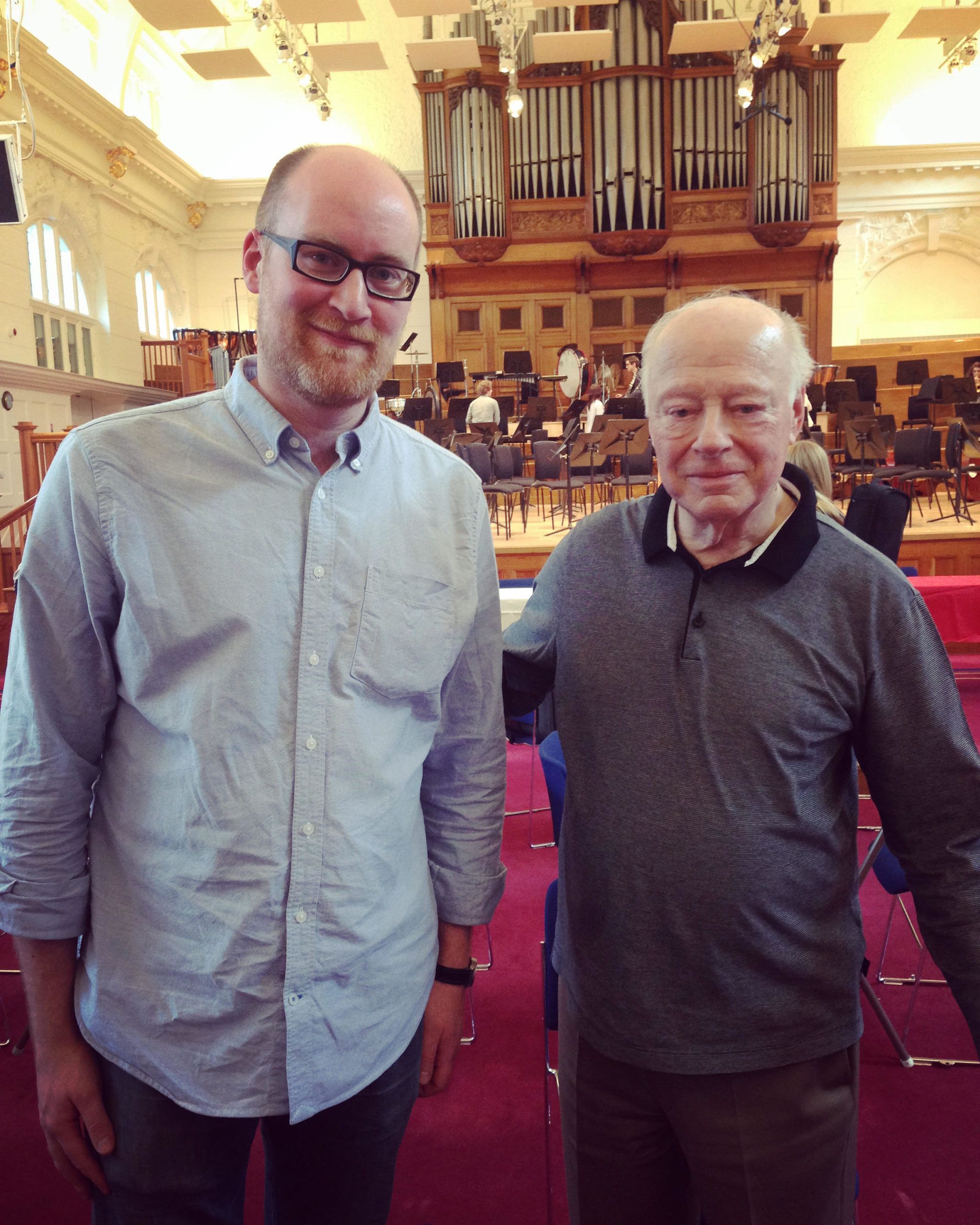
Photo: Ben Palmer. June 2014, taken immediately after Haitink’s first Mahler 7 rehearsal at the Royal College of Music.
Ben Palmer
Chief Conductor, Deutsche Philharmonie Merck
Founder and Artistic Director, Covent Garden Sinfonia
In 2014 I was invited by the Royal College of Music to prepare its Symphony Orchestra for Bernard Haitink’s performance of Mahler 7. As well as bringing the players together into a cohesive ensemble – the orchestra is assembled afresh for each project; I tried to rehearse in as much of Haitink’s own interpretation as I could, having done some intensive study of his most recent recordings. As a then-32-year-old, it was my first time conducting the symphony, and it was fascinating to learn it through someone else’s eyes, to try and make sense of their decisions and ideas. After a few days of intense work, I came into College to watch Bernard’s first rehearsal. Unsurprisingly, he was treated like royalty at the RCM: a welcome party of senior staff waited on the steps; the orchestra tuned and ready on the stage. There was complete silence as he stepped onto the podium. After a handshake with the leader, he said in a quiet voice, “We have a mountain to climb, so let’s start climbing.”
I almost had a heart attack when he began conducting in eight – I had rehearsed in four – but, of course, like every gesture of his, it was unmistakable. Much to my relief, he did all his tempi and rubato as we had prepared, and the first run-through of the first movement went extremely well. In those delicious moments of silence after it finished, he turned round, found me in the hall, did a little bow, and said “Bravo.” It still sends shivers up my spine thinking about it. Of course, in that rehearsal of his, I learnt more about the symphony than I had in all the weeks I’d spent preparing it. Passages that had been awkward or difficult for me, he navigated with a mere flick of the wrist; moments that left me sweaty he would conjure with a lightly clenched fist.
In 2017, the RCM asked me to prepare Daphnis et Chloé for him. The day before I was due to have my last two sessions with the full orchestra, the message came that Mr Haitink felt he might need an extra rehearsal, so my last one would be taken by him. I didn’t expect him to remember who I was, but when he arrived he walked straight up to me, shook my hand, greeted me by name, and apologised for “stealing one of your rehearsals.”
That he was so kind, encouraging and generous to me personally only proves what everyone says: he was a true gentleman. He was also, quite simply, my favourite conductor.
Kenneth Woods
Principal Conductor, English Symphony Orchestra
Artistic Director, Colorado MahlerFest
Artistic Director, Elgar Festival
The sorrow that came from hearing the news of the passing of conductor Bernard Haitink last week was, for me at least, made even deeper at the nagging thought that, widely as Haitink is already missed, we now live in a musical world that doesn’t share the unique qualities which made him such a remarkable figure.
Haitink was an exemplar of everything a conductor should be – and the antithesis of what most people assume a conductor is likely to be; he was a musician of real depth. In a climate where interpretive choices can sometimes be driven by fads and dogma, Haitink’s music-making was deeply intuitive, grounded in a deep knowledge of the scores he conducted, his artistry made all the more special through his famously collegial and collaborative approach.
For the last third of his career, Haitink stood out as a seasoned master in a craft which, more and more often, treats such experience with disdain. This is ironic because Haitink was something of a boy wonder, ascending to the position of Principal Conductor of the Concertgebouw Orchestra at such a young age – just thirty years old then! But, while some young talents seem to stop evolving the moment they achieve a first taste of success, Haitink never stopped growing. His life’s work is, if nothing else, a testament to the results of a lifelong commitment to learning and self-improvement. Haitink was absolutely allergic to empty display and conducted without a hint of vanity on the podium, yet he had possibly the most expressive, effective, and dare I say, beautiful conducting technique of anyone who ever waved a baton. He had a gift for drawing the most beautiful sound from any orchestra, but he also had a steely core and a plenty of fire within. His music-making could take the listener straight into the abyss when called for.
In an age that prizes first impressions above all else, Haitink’s performances offered more than a single listen could reveal. A wise teacher understands that even a fine student may not fully absorb a lesson for many years, but, nevertheless, shares their insights without impatience or condescension. Haitink was one of the last interpreters I can think of who made music in much the same way, serene in the knowledge that, as one grows as a listener, they will find more and more inspiration, more enjoyment, and more enlightenment in the scores he loved. I am grateful that I can continue to learn from his work.
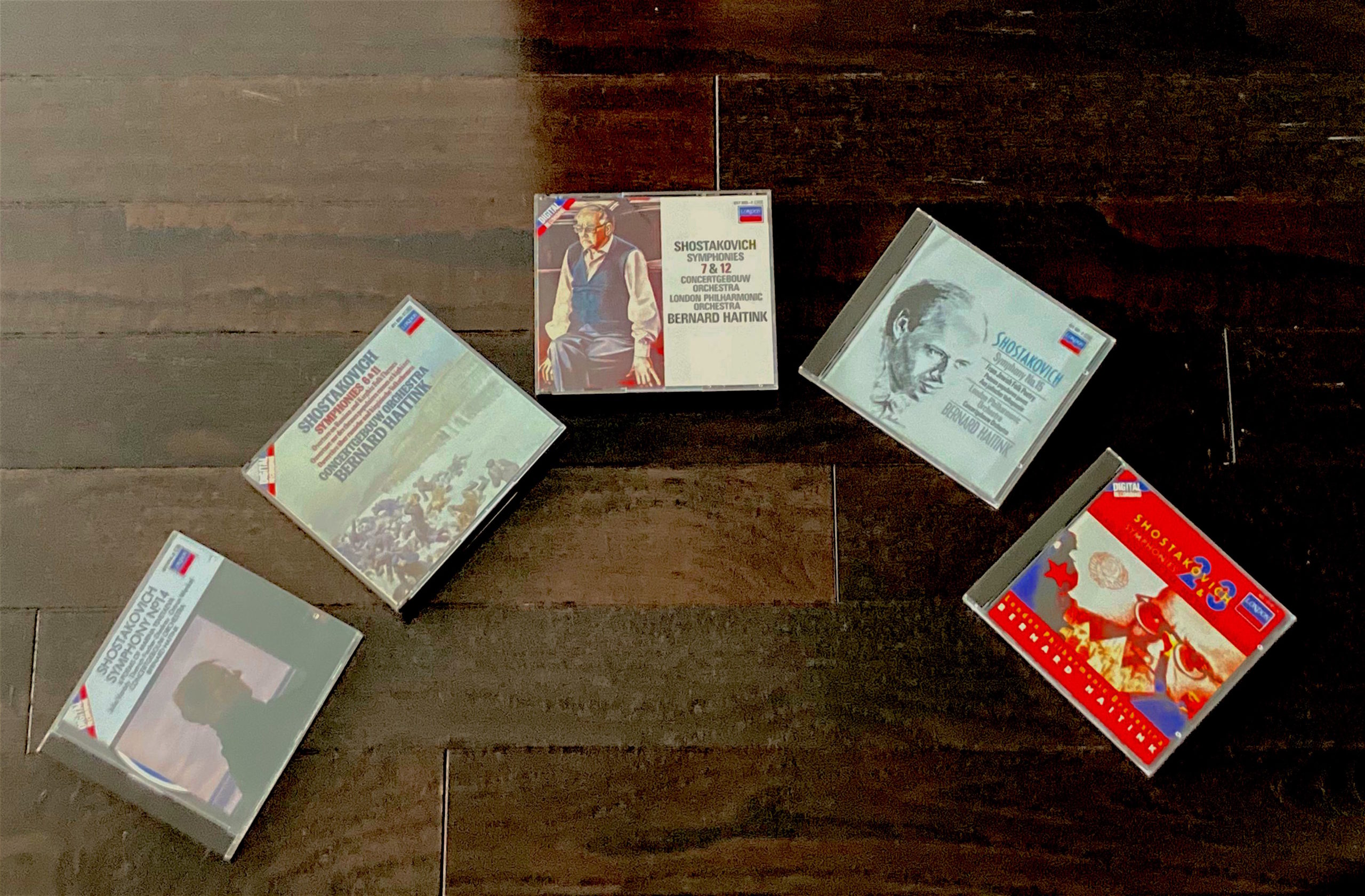
Photo: mine. Please do not reproduce without express written permission.
Alan Mercer
Director, GBF Media
Editor, The DSCH Journal
Haitink was no “hero” of Shostakovich’s music, no showman, no denier or decrier of the endless controversies that the West loved to drag along in the composer’s wake. “Loyal Son”, “Closet Dissident” were of no significance to Bernard Haitink, or at least to the manner in which he approached Shostakovich’s symphonic oeuvre. What did matter to the Dutchman, and indeed what ultimately made his interpretations of many of the great composers of our age so moving, was his ability to embody a sense of humanity through his art, to convey the composer’s inner mind to the audience. During recording sessions for his Decca recording of Shostakovich’s Fifth, Haitink is quoted as saying “You must read ‘Testimony.’ [Solomon Volkov’s controversial ‘Memoirs’] It’s tragedy, black tragedy – Shostakovich was an “unhappy man.” And I defy anyone not to be stirred by the 3rd movement Largo, in the recording of the Fifth with the Concertgebouw.
Few people imagine that the two men might have met, crossed paths and even exchanged a few words. Yet they did meet, in 1975, in Moscow, Haitink describing the sick and weary composer as “A nervous man, very wary.” Shostakovich told Haitink that he had been moved by his performance with the Concertgebouw that day, an account that the conductor related with evident melancholic pride.
It was at the London Proms in 2008 that I truly comprehended how a genius such as Haitink could communicate to an audience such extremes of angst, ferocity and desperation that a work such as Shostakovich‘s Fourth Symphony embodies. The orchestra – the Chicago Symphony was of course no stranger to this repertoire, given Gennadi Rozhdestvensky’s previous tenure – but if the Russian conductor drew out of the music its unmistakable Mahlerian influences, in Haitink’s hands the Fourth truly did, as one critic wrote “Appear from the depths of Stalin’s terror – as Shostakovich’s requiem.” Haitink’s control was subtle but absolute. The impulsiveness and orchestral volatility of the Fourth (which Haitink stated was his favourite of the cycle, along with the Fifteenth) can, in some performances err on the incoherent (no names shall be named): here the Royal Albert Hall shook with the intensity of the creeping violence of the 1930s, intertwining deafening expletives and hushed, fearful whisperings. After the final bars: silence. Sweat poured from the maestro’s brow, it seemed, onto the pages of the score. Silence. An unearthly peace had settled like the ashes of an existence.
Jari Kallio
Teacher
Music Writer
All my musical life, Bernard Haitink was there. My first encounter with Mahler 5 happened with his Concertgebouw recording on a 1970s Philips vinyl set. Picking up the Amsterdam tradition in the sixties, Haitink conducted Mahler way before it was cool. As years mounted, his recorded cycles of Mahler and Bruckner became paramount – and deservedly so. Alongside Austro-German repertoire, Haitink’s performances of Debussy and Ravel were equally indispensable, as a budget-priced re-release of the latter’s orchestral works, bought with my limited student money at the time, resoundingly demonstrated. As for Debussy, he was the one who first introduced me to the discarded fanfare in the last movement of La Mer; a discovery that ignited my inextinguishable fascination in the earlier versions of the well-known works in the repertory, and the musical processes concealed within the minds of composers.
My last two memories of seeing the man himself are both from London, one of his musical capitols. In May 2017, I had the privilege to join the Barbican audience for his Bruckner double-bill with the LSO, an orchestra he worked with in close association over the last two decades of his conducting career. While volumes could be written about the wonderful performances of Te Deum and Symphony IX, the fact that the London Symphony Chorus remained onstage after the intermission to hear Haitink conduct Bruckner’s last symphony, speaks more than any words I could come up with. A couple of months later, I saw him once more, engaged in post-concert discussion with Sir Simon Rattle, whose era as the Music Director of the LSO had just been augured in the hall below, with a marvellous contemporary programme. Though his name is mostly associated with the big works in the repertoire, Haitink did his share with contemporary music too, resulting in dedicated premieres, such as the terrific first outing of Mark-Anthony Turnage’s Chicago Remains in with the CSO in October 2007.
A Haitink performance was always about the music – no more, no less. His readings did not draw attention to the act of conducting; rather, they evoked the sense of rediscovery of the musical works and the notion of the extraordinary quality of orchestral playing, and when it came to performing concertos, Haitink was the most generous accompanist. In terms of architecture, he made Brahms interesting – unlike many of his esteemed colleagues. On the podium, he inspired and helped, without getting in the way.
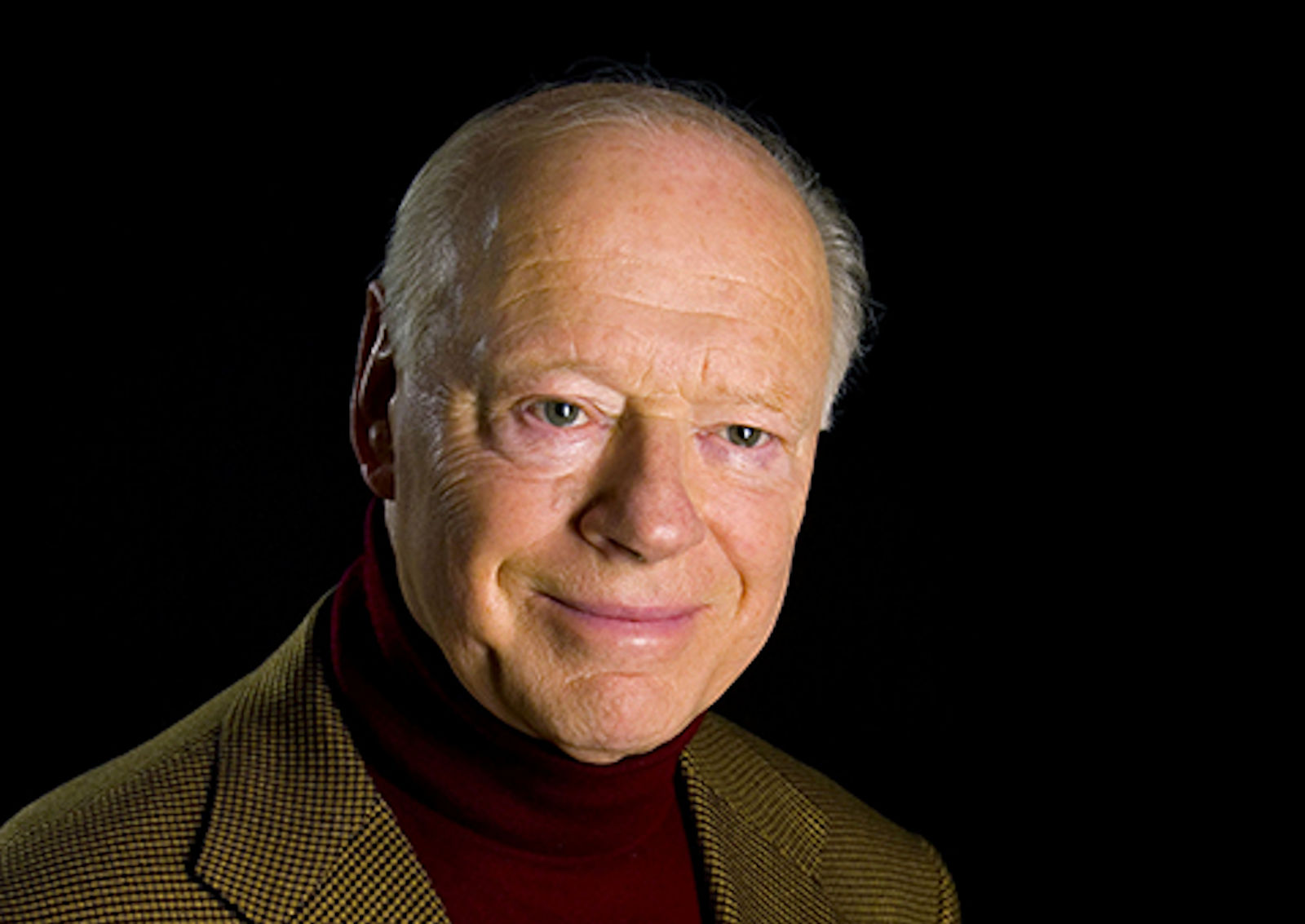
Photo: Clive Barda
Top Photo: Bernard Haitink leading the Chicago Symphony Orchestra in October 2013. Photo © Todd Rosenberg Photography 2013

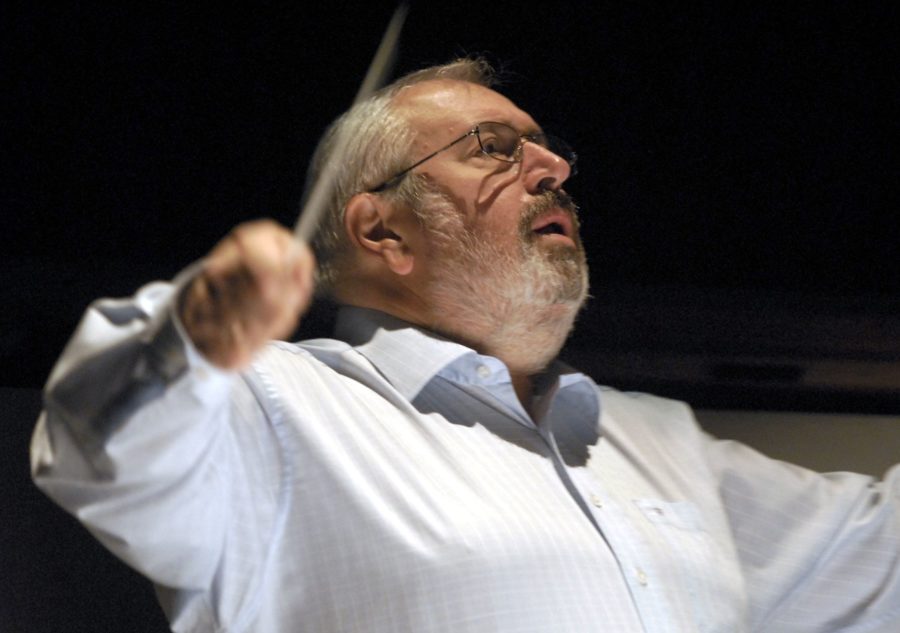

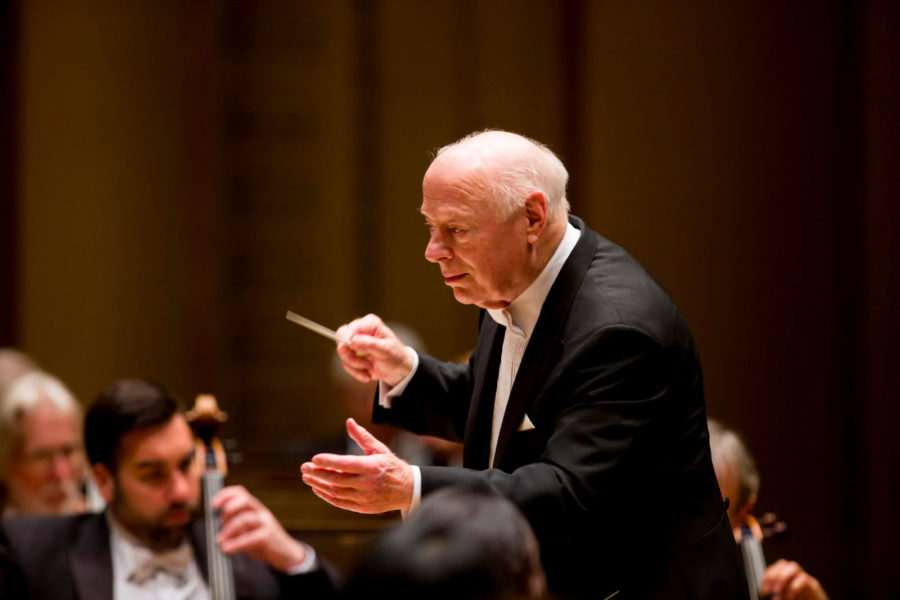




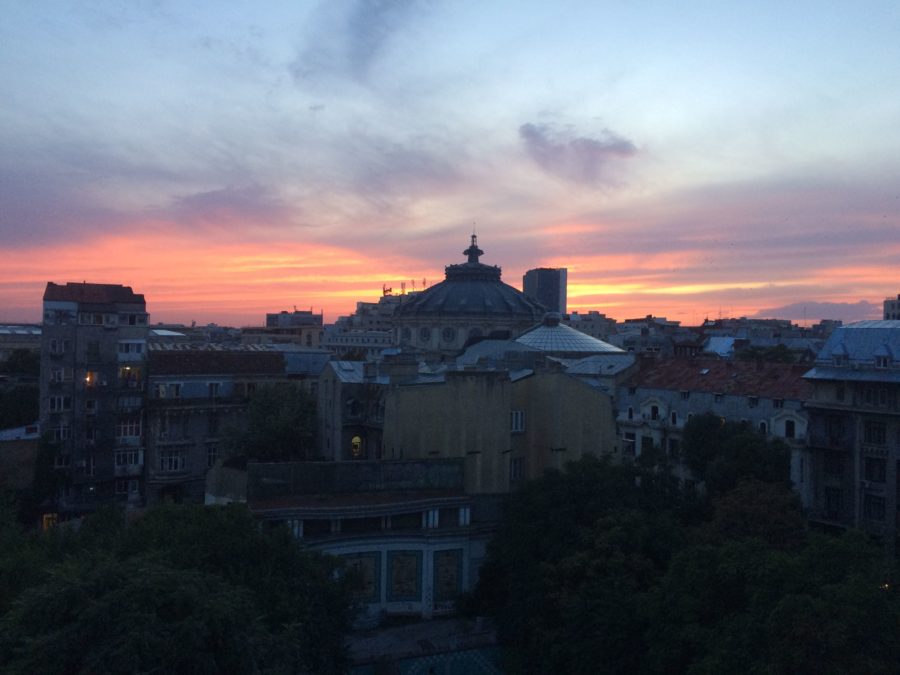
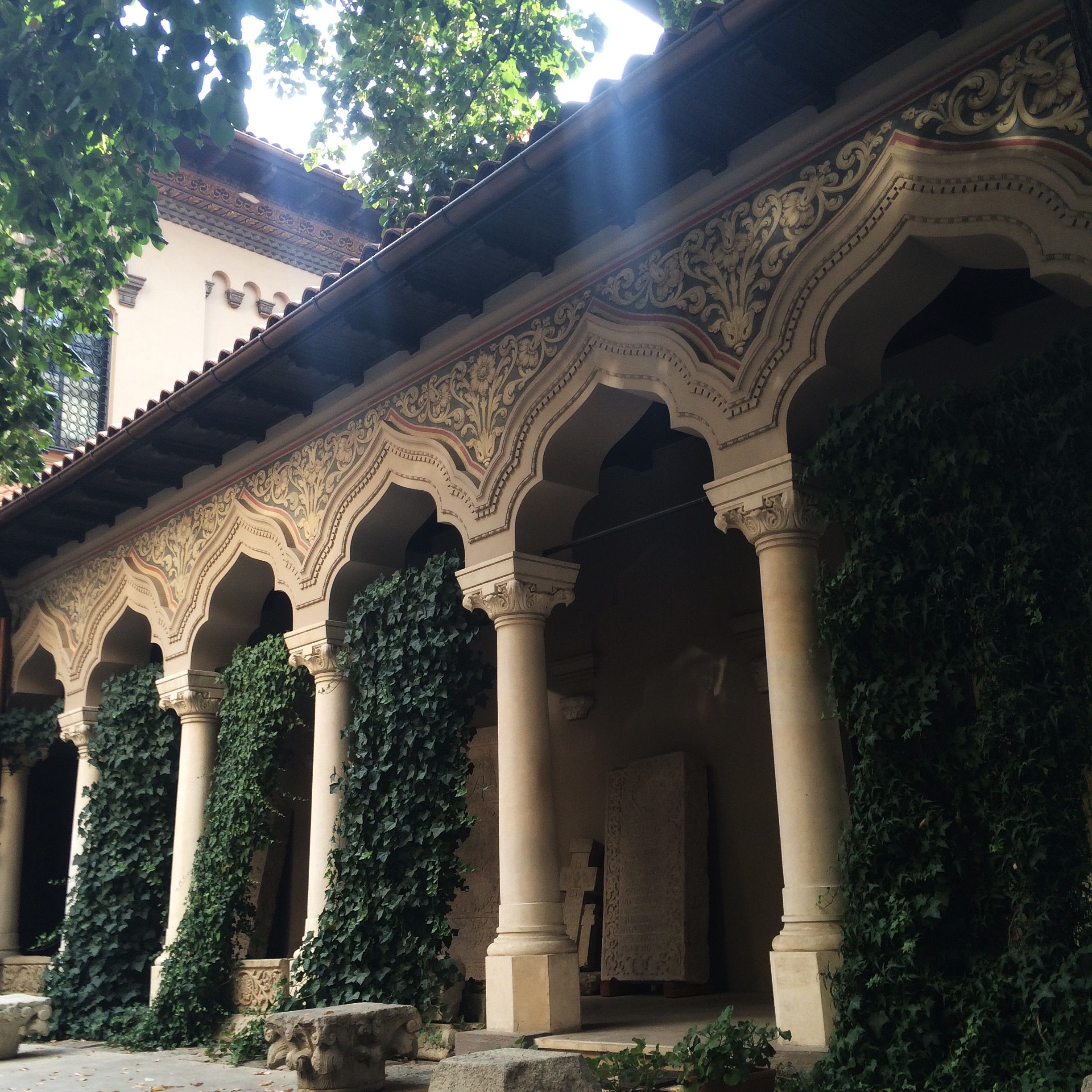
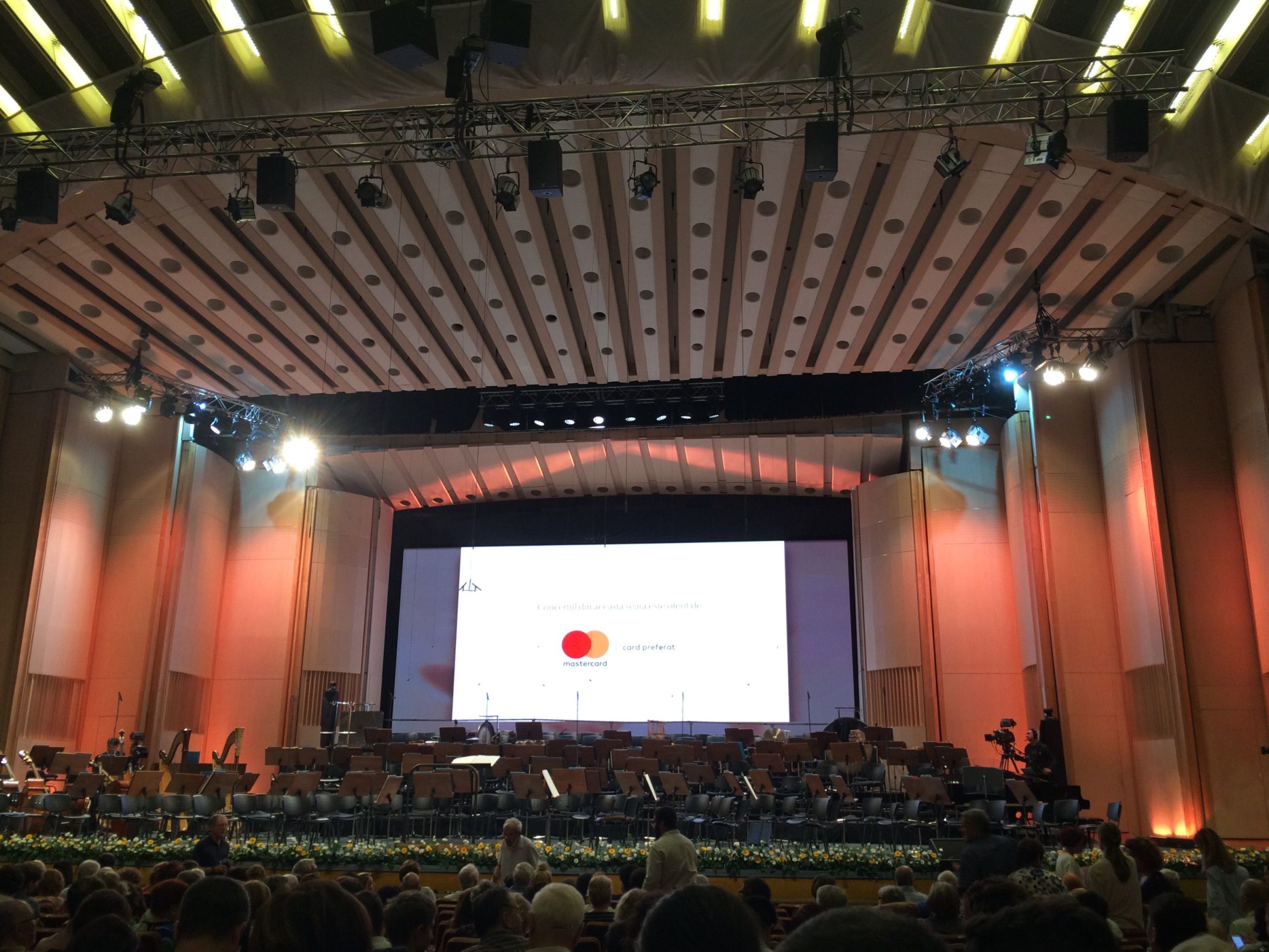
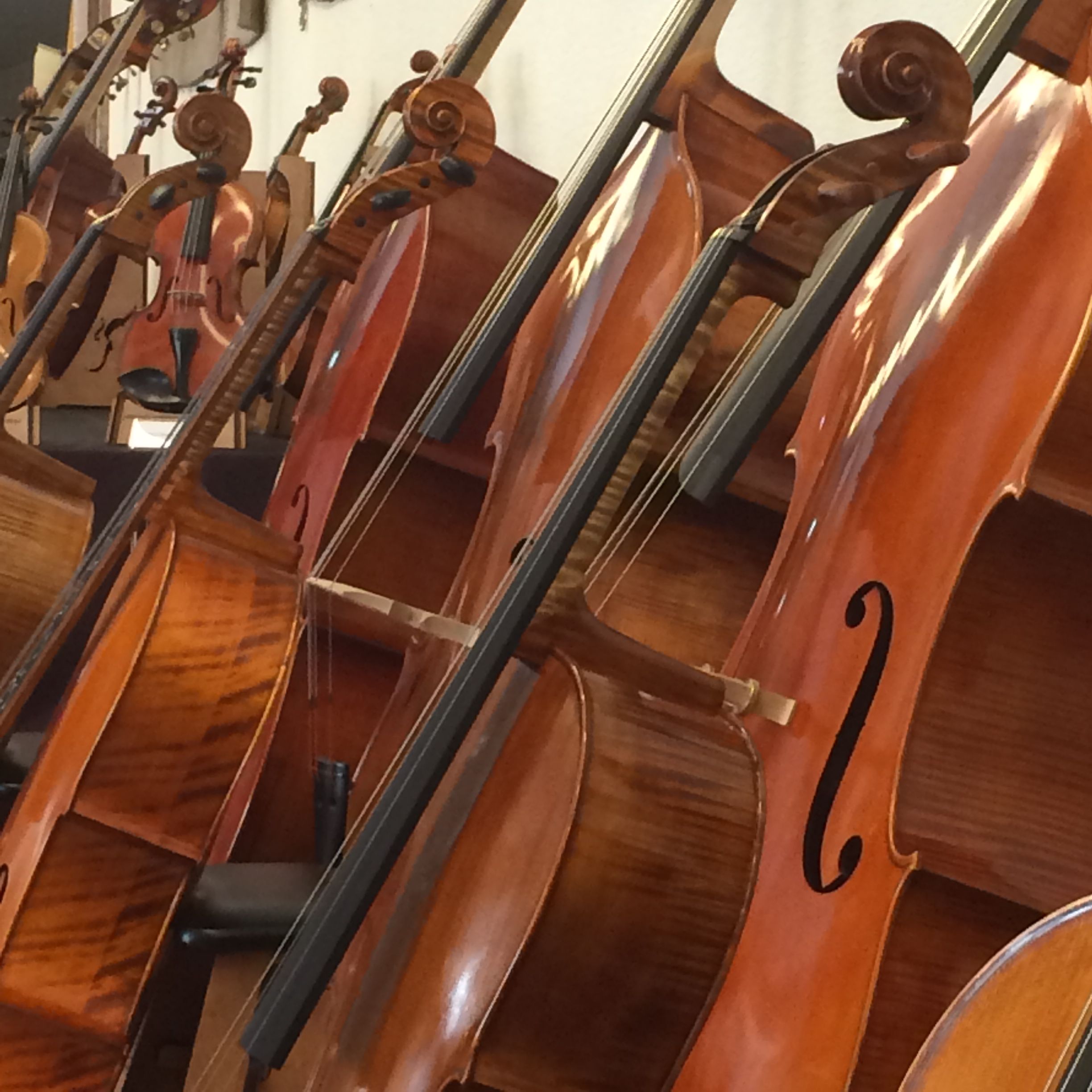
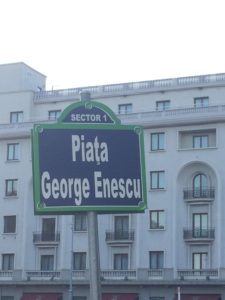
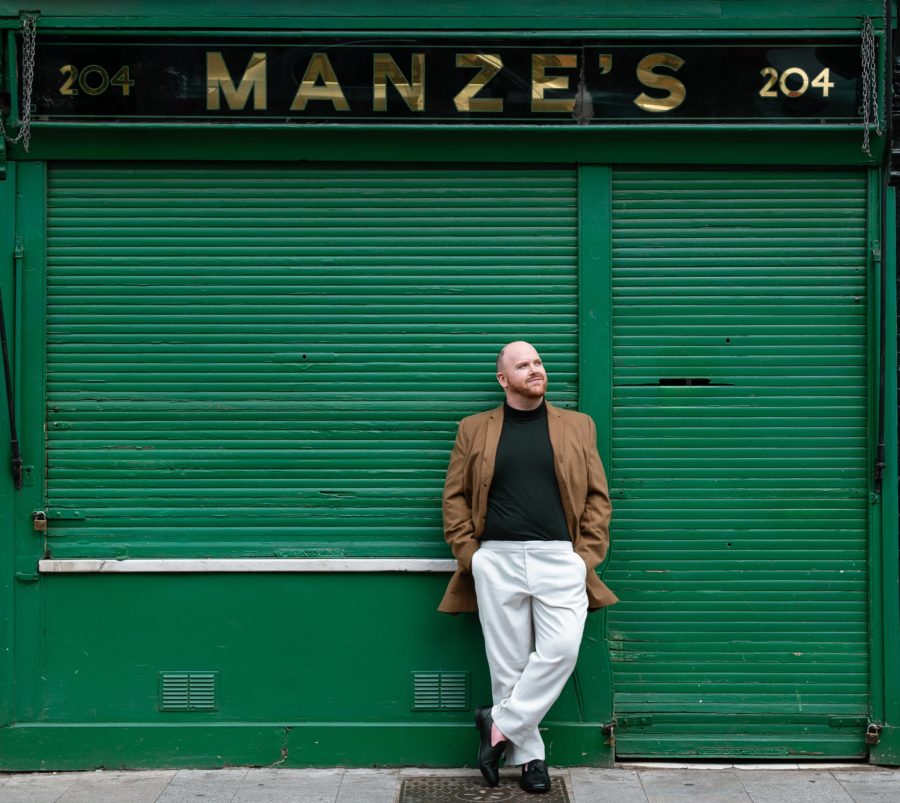
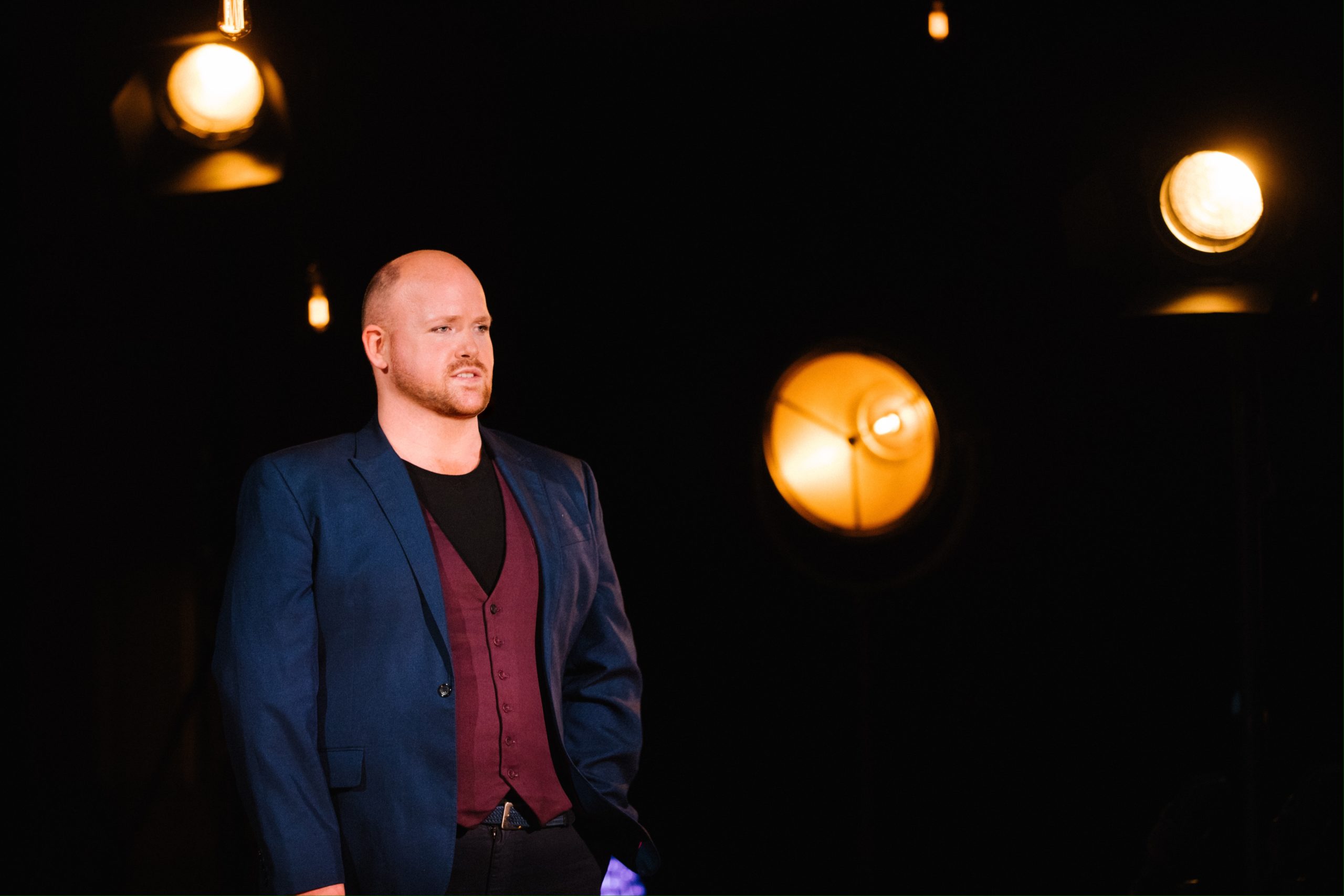
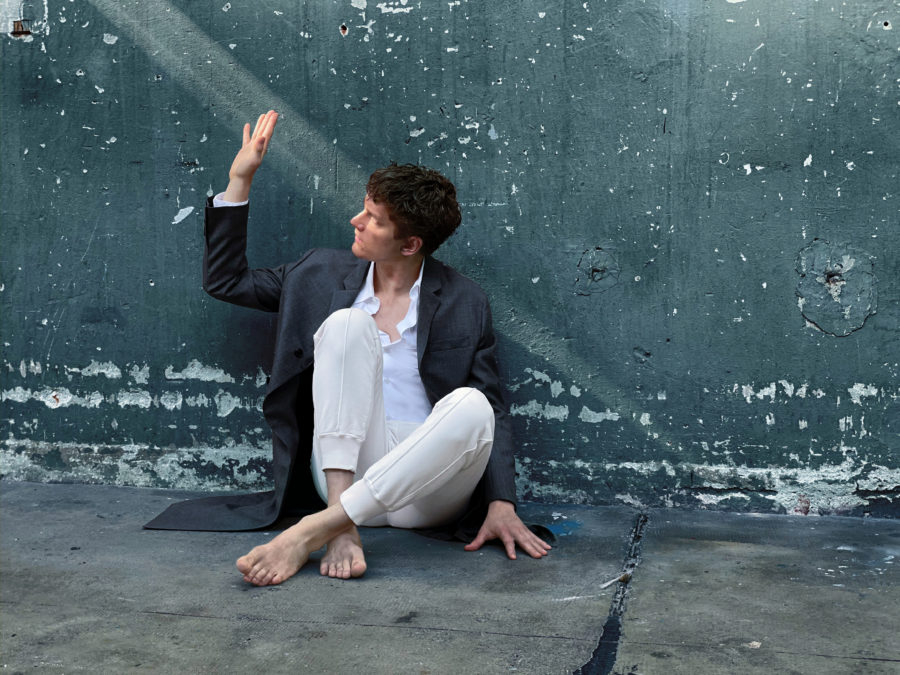
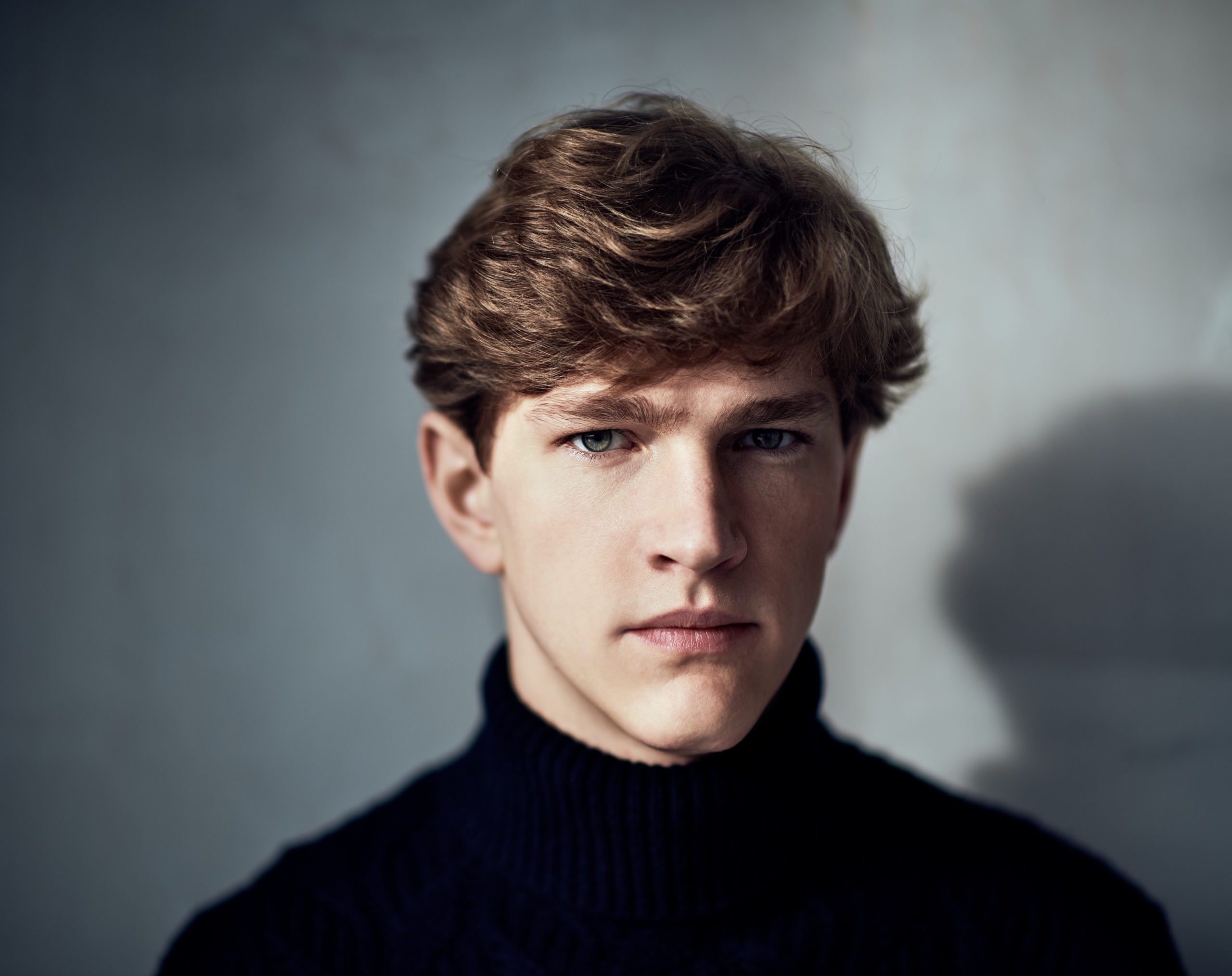
 That’s palpable in the recording, and I hear something different every time. Listening to the left hand can really bring something alive that one thought one knew well.
That’s palpable in the recording, and I hear something different every time. Listening to the left hand can really bring something alive that one thought one knew well.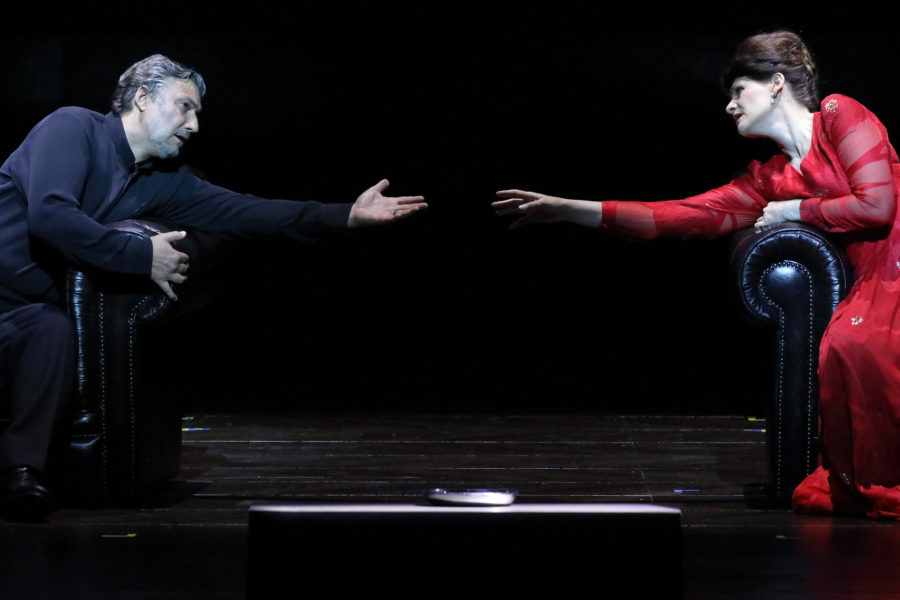
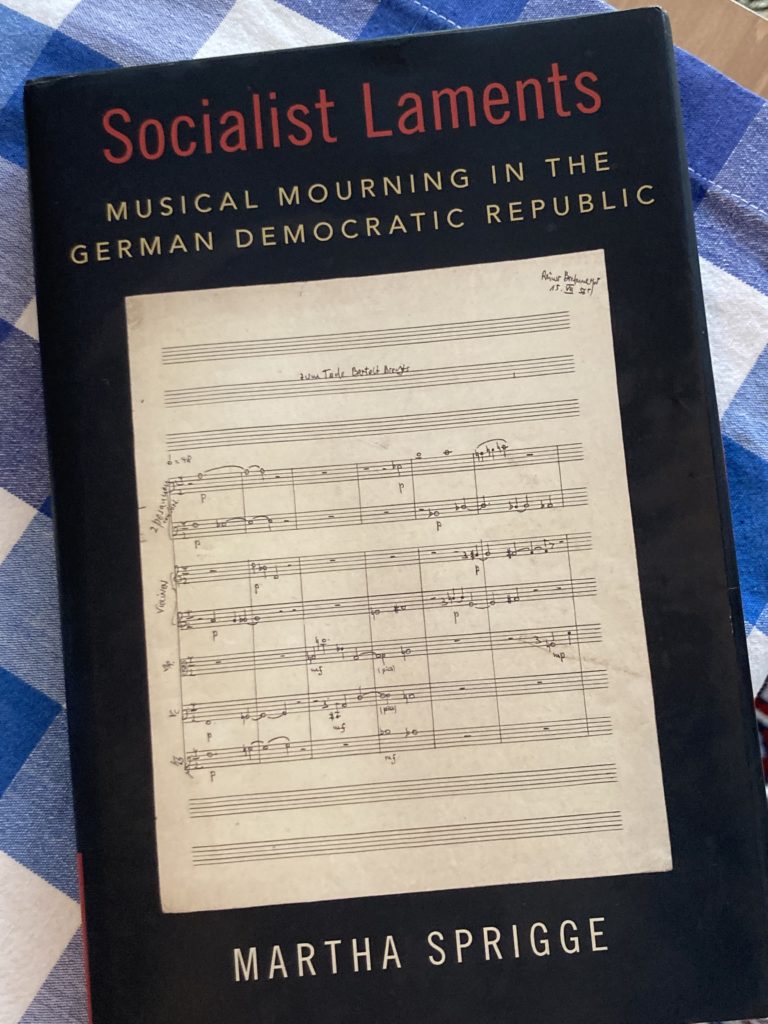 Why did you focus on mourning and the music associated with it? You outline some academic motivations in the book but I’m curious about personal instincts.
Why did you focus on mourning and the music associated with it? You outline some academic motivations in the book but I’m curious about personal instincts.